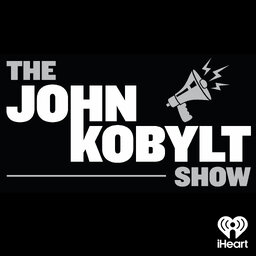Phil Shuman Fills In For The John Kobylt Show Hour 1 (01/02) - Terrorist Attack
Phil Shuman fills in for John. Olivia Rubin comes on the show to talk about the terror attack in New Orleans on Bourbon St. yesterday. Can a terrorist attack like what happened in New Orleans happen in Southern California? Dallas Aimer comes on the show to talk about witnessing the Cybertruck exploding at the Trump Hotel in Vegas yesterday. If you see something, say something.
In 1 playlist(s)
The John Kobylt Show
John and Ken have been on KFI for over thirty years and with Ken's recent retirement John now takes …Social links
Follow podcast
Recent clips

Sheriffs Can't Arrest ICE In LA County! (01/15)
35:16

More Clashes With ICE In Minnesota (01/15)
31:47

We Need To Save Prop 13 (01/15)
31:38
 The John Kobylt Show
The John Kobylt Show